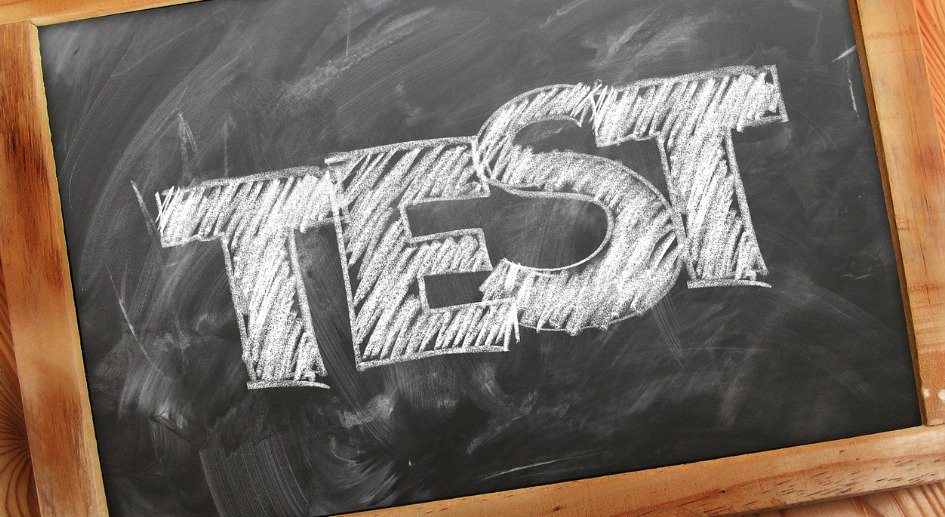
Are you ready to take your career to the next level by landing a government job? Preparing for government exams can be a daunting task, as the competition is fierce and the syllabus extensive. But fear not! With the right strategy and mindset, success is within your reach.
In this ultimate guide, we will walk you through everything you need to know to excel in government exams. From understanding the exam pattern and syllabus to mastering time management and effective study techniques, we've got you covered. Our expert tips and tricks will not only help you crack the exams but also enhance your overall performance.
Whether you're a fresh graduate or a working professional looking for a career change, this guide is your roadmap to success. So, get ready to embark on your journey toward a rewarding government job. It's time to equip yourself with the skills and knowledge needed to ace those exams and secure a bright future. Let's dive in!
Government exams come in various forms and cover a wide range of sectors. To begin your preparation, it's essential to understand the different types of exams you may encounter. One common category is civil service exams, which are conducted by the Union Public Service Commission (UPSC) for prestigious positions such as Indian Administrative Service (IAS), Indian Police Service (IPS), and Indian Foreign Service (IFS).
These exams test your knowledge in various subjects like history, geography, current affairs, and more. Other popular government exams include banking exams conducted by the Institute of Banking Personnel Selection (IBPS), staff selection exams conducted by the Staff Selection Commission (SSC), and state-level exams conducted by respective state governments. Each exam has its own unique syllabus and pattern, so it's crucial to familiarize yourself with the specific requirements of the exam you're targeting.
Before you start your preparation, it's crucial to check the eligibility criteria and requirements for the government exams you wish to appear for. Eligibility criteria may include age limits, educational qualifications, and sometimes even physical fitness standards. For example, civil service exams usually require candidates to have a bachelor's degree from a recognized university, while banking exams may have specific educational requirements related to commerce or finance.
It's important to thoroughly read the official notifications and understand the eligibility criteria to ensure you meet the necessary qualifications. Additionally, be aware of any document requirements and application procedures to avoid any last-minute hassles. Having a clear understanding of the eligibility criteria will help you plan your preparation accordingly and avoid wasting time on exams you are not eligible for.
Understanding the syllabus and exam pattern is crucial for effective preparation. The syllabus provides a roadmap of the topics you need to cover, while the exam pattern gives you an idea of how the questions will be structured and the marking scheme.
For most government exams, the syllabus includes subjects such as general knowledge, mathematics, reasoning, and English language skills. It's important to go through the syllabus in detail and prioritize topics based on their weightage and your strengths and weaknesses. Additionally, familiarize yourself with the exam pattern, including the number of questions, the duration of the exam, and the marking scheme. This will help you allocate your time and resources accordingly and develop a targeted study plan.
A well-structured study plan is the backbone of successful exam preparation. It helps you stay organized, manage your time effectively, and ensure comprehensive coverage of the syllabus. Start by assessing the amount of time you have available for preparation and then divide it into specific study periods. Prioritize topics based on their importance and difficulty level.
Allocate more time to challenging subjects while ensuring you leave enough time for revision and practice. Break your study sessions into smaller, manageable chunks to maintain focus and avoid burnout. Additionally, set specific goals for each study session to keep yourself motivated and track your progress. Remember to include breaks in your study plan to relax and rejuvenate. A well-structured study plan will not only help you cover the syllabus but also ensure you have ample time for revision and practice.
Choosing the right study materials is crucial for effective exam preparation. While there are numerous books, online resources, and coaching institutes available, it's important to select those that align with your learning style and preferences. Start by researching popular books and study materials recommended by experts and previous successful candidates.
Look for materials that provide comprehensive coverage of the syllabus, clear explanations, and practice questions. Online resources such as e-books, online course websites, and video lectures can also be valuable supplements to your preparation. Additionally, consider joining a coaching institute if you prefer structured guidance and personalized attention.
Coaching institutes provide expert faculty, study materials, and mock tests to help you enhance your preparation. Remember, quality study materials can make a significant difference in your understanding of the topics and your overall performance in the exams.
Effective time management is key to maximizing your productivity during exam preparation. Start by identifying your most productive hours of the day and allocate them for focused study sessions. Create a daily and weekly schedule that includes specific time slots for each subject or topic. Set realistic goals for each study session and track your progress.
Avoid multitasking and prioritize your tasks based on their importance and urgency. Eliminate distractions such as social media and unnecessary phone notifications to maintain focus. Additionally, take short breaks during study sessions to relax and refresh your mind.
Use techniques such as the Pomodoro Technique, where you work for 25 minutes and take a 5-minute break, to maintain productivity. By managing your time effectively, you can cover more topics, revise thoroughly, and improve your overall performance in the exams.
Practice makes perfect and mock tests are an essential part of your exam preparation strategy. Mock tests simulate the actual exam environment and help you gauge your readiness. They familiarize you with the exam pattern, time constraints, and the types of questions you may encounter. Many coaching institutes and online platforms offer mock tests for government exams.
Take these tests regularly to assess your strengths and weaknesses, identify areas that need improvement, and get acquainted with time management techniques. Along with mock tests, solving previous year's question papers is equally important. Previous year's question papers give you an idea of the recurring topics and the level of difficulty.
Analyze your performance in mock tests and previous year papers to identify patterns and devise strategies to improve. Regular practice through mock tests and previous year's papers will build your confidence and help you perform better on the actual exam day.
Revision plays a crucial role in retaining the information you have learned. Plan regular revision sessions to reinforce your understanding of the topics. Review your notes, study materials, and practice questions to refresh your memory. Focus on the areas where you feel less confident and revise them multiple times. One effective revision technique is the spaced repetition method, where you review the topics at regular intervals to reinforce your memory.
Along with revision, self-assessment is equally important to track your progress. Take self-assessment quizzes or solve practice questions to evaluate your understanding of the topics. Analyze your performance and identify areas that need further improvement. Regular revision and self-assessment will not only strengthen your knowledge base but also boost your confidence for the exams.

The day of the exam can be nerve-wracking, but with the right tips and strategies, you can maximize your chances of success. Start by getting a good night's sleep before the exam to ensure you are well-rested and alert. Wake up early and have a healthy breakfast to fuel your brain. Dress comfortably and carry all the necessary documents such as your admit card, ID proof, and stationery.
Reach the exam center well in advance to avoid any last-minute stress. During the exam, read the instructions carefully and manage your time wisely. Start with the easier questions to build momentum and gain confidence.
Answer all the questions you are sure about first and then come back to the difficult ones. Avoid spending too much time on a single question as it may eat up your valuable time. Lastly, stay calm and focused throughout the exam. Believe in yourself and trust your preparation. With a positive mindset and effective exam strategies, you can conquer the government exams.
Once you have completed the exams, it's important to analyze your performance and interpret the results. Review the question paper and compare your answers with the official answer key, if available. Identify the questions you answered incorrectly and understand the reasons behind your mistakes. This will help you identify your weaknesses and areas that need improvement.
If your exam result is declared, analyze your score and percentile. Understand the cutoff marks and compare your score with it to assess your chances of qualifying for further rounds or securing a job. Use the exam analysis and result interpretation as feedback to improve your preparation for future exams. Learn from your mistakes and focus on strengthening your weak areas. Remember, every exam is a learning experience, and with each attempt, you get closer to success.
Additional Tips for Success:
In addition to the previous sections, here are some extra tips and advice to boost your preparation and increase your chances of success in government exams:
1. Stay updated with current affairs: Government exams often include questions related to current affairs. Stay updated with the latest news, events, and developments through newspapers, news websites, and magazines.
2. Join online study groups: Joining online study groups or forums can provide you with a platform to discuss doubts, exchange study materials, and learn from others' experiences. Engage in healthy discussions and seek help when needed.
3. Stay motivated: Government exam preparation can be a long and challenging journey. Stay motivated by setting short-term and long-term goals, rewarding yourself for achieving milestones, and surrounding yourself with positive and supportive people.
4. Take care of your health: Your physical and mental well-being plays a crucial role in your performance. Eat a balanced diet, exercise regularly, and practice relaxation techniques such as meditation or yoga to reduce stress and stay focused.
5. Learn from success stories: Read success stories of candidates who have cracked government exams. Learn from their strategies, techniques, and experiences. Their stories will inspire you and provide valuable insights into effective preparation.
6. Stay positive and believe in yourself: Remember, success in government exams is not just about knowledge but also about confidence and a positive mindset. Believe in yourself, stay focused, and give your best effort. With dedication and hard work, you can achieve your goal.
Conclusion
In conclusion, preparing for government exams requires a systematic and well-planned approach. By understanding the exam pattern, syllabus, and eligibility criteria, creating a study plan, using recommended study materials, managing your time effectively, practicing mock tests and previous year papers, and analyzing your performance, you can enhance your chances of success.
Remember to stay motivated, take care of your health, and believe in yourself throughout the preparation phase. Consistency, dedication, and perseverance are the keys to cracking government exams and securing a bright future. So, gear up, follow this ultimate guide, and embark on your journey toward a rewarding government job. Good luck!